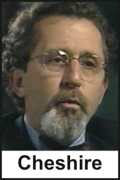Rascals case in brief
In the beginning, in 1989, more than 90 children at the Little Rascals Day Care Center in Edenton, North Carolina, accused a total of 20 adults with 429 instances of sexual abuse over a three-year period. It may have all begun with one parent’s complaint about punishment given her child.
Among the alleged perpetrators: the sheriff and mayor. But prosecutors would charge only Robin Byrum, Darlene Harris, Elizabeth “Betsy” Kelly, Robert “Bob” Kelly, Willard Scott Privott, Shelley Stone and Dawn Wilson – the Edenton 7.
Along with sodomy and beatings, allegations included a baby killed with a handgun, a child being hung upside down from a tree and being set on fire and countless other fantastic incidents involving spaceships, hot air balloons, pirate ships and trained sharks.
By the time prosecutors dropped the last charges in 1997, Little Rascals had become North Carolina’s longest and most costly criminal trial. Prosecutors kept defendants jailed in hopes at least one would turn against their supposed co-conspirators. Remarkably, none did. Another shameful record: Five defendants had to wait longer to face their accusers in court than anyone else in North Carolina history.
Between 1991 and 1997, Ofra Bikel produced three extraordinary episodes on the Little Rascals case for the PBS series “Frontline.” Although “Innocence Lost” did not deter prosecutors, it exposed their tactics and fostered nationwide skepticism and dismay.
With each passing year, the absurdity of the Little Rascals charges has become more obvious. But no admission of error has ever come from prosecutors, police, interviewers or parents. This site is devoted to the issues raised by this case.
On Facebook
Click for earlier Facebook posts archived on this site
Click to go to
Today’s random selection from the Little Rascals Day Care archives….
Click for earlier Facebook posts archived on this site
Click to go to
Today’s random selection from the Little Rascals Day Care archives….
The darkness that lurks behind Darkness to Light
Jan. 16, 2012
Darkness to Light is a Charleston-based nonprofit with the goal “End Child Abuse.” Since its founding in 2000, D2L claims to have trained adults in 48 states and 10 foreign countries in how to prevent, recognize and react to child sexual abuse. Among its allies: YMCAs.
Unfortunately, D2L is less than meticulous in associating itself with other organizations. This is a letter I sent D2L officials on Dec. 5:
Darkness to Light does a disservice to the public and to your cause when you include on your list of resources the Survivorship website.
 Survivorship’s board president is Neil Brick, who identifies himself as “the founder of S.M.A.R.T. (Stop Mind Control and Ritual Abuse Today) at http://ritualabuse.us. He is a survivor of ritual abuse and a survivor advocate. He works on developing supports for survivors and getting information out to the general public about ritual abuse. He runs yearly ritual abuse conferences on the east coast of the United States every year at http://ritualabuse.us/smart-conference. Links to his presentation transcripts and research papers are http://ritualabuse.us/smart/neil-brick.”
Survivorship’s board president is Neil Brick, who identifies himself as “the founder of S.M.A.R.T. (Stop Mind Control and Ritual Abuse Today) at http://ritualabuse.us. He is a survivor of ritual abuse and a survivor advocate. He works on developing supports for survivors and getting information out to the general public about ritual abuse. He runs yearly ritual abuse conferences on the east coast of the United States every year at http://ritualabuse.us/smart-conference. Links to his presentation transcripts and research papers are http://ritualabuse.us/smart/neil-brick.”
S.M.A.R.T. is perhaps the most prominent organization still insisting that numerous day-care providers in the 1980s and early 1990s subjected children to “satanic ritual abuse.” Although the day-care panic eventually waned and courts freed nearly all the unfortunate defendants, S.M.A.R.T. continues to see abuse in every one of these cases – from McMartin to Little Rascals to Fells Acres, etc.
Like Scientologists and Holocaust deniers, S.M.A.R.T. has been banned from editing Wikipedia entries. Neither should its disinformation campaign be given a platform by Darkness to Light.
Darkness to Light has yet to respond to that letter or to a Dec. 30 follow-up soliciting “a statement explaining why you continue to support this organization.” I’d be happy to publish such an explanation, but even happier to learn that D2L has cut its ties to the ritual abuse movement.
Oh, for the ability to recognize something ‘odd’
 June 25, 2012
June 25, 2012
“I saw this woman in her 20s … accused of something like 2,800 charges of child sex abuse. Oh, I thought, well, that’s very odd….
“I thought, How can (Kelly Michaels) one woman, one young, lone woman in an absolutely open place like the child care center of the church in New Jersey that she worked for – how could she have committed these enormous crimes against 20 children, dressed and undressed them and sent – you know what it is to dress and undress even one child every day without getting their socks lost? – 20 children in a perfectly public place, torture them for two years, frighten and terrorize them, and they never went home and told their parents anything?… This did seem strange.”
– Dorothy Rabinowitz, recalling on C-SPAN the 1985 case that led to her Pulitzer-winning coverage of the ritual-abuse day-care mania
“This did seem strange.”
From the vantage of 2012, of course, such allegations seem not only “strange” but also patently incredible.
So why didn’t everybody – therapists, journalists, prosecutors, jurors – share Rabinowitz’s reasonable doubt?
How did such a grotesque misconception flourish?
Had skepticism really fallen that far out of fashion during the “Believe the Children” zeitgeist?
Betsy Kelly wouldn’t succumb to state’s torture
 July 16, 2012
July 16, 2012
“Elizabeth Kelly was denied parole Friday, three months after pleading no contest to charges of sexually abusing children at her Edenton day care.
“Mrs. Kelly, sentenced to seven years, was eligible for parole upon entering prison because she had already served more than two years while awaiting trial.
“Prosecutor Bill Hart said opposition to Mrs. Kelly’s release was heightened by her statements of innocence after entering her plea.
“‘From my work dealing with sex offenders there is no way you can treat a sex offender and restore them to the community until that person admits the wrongness of her actions and takes responsibility….’”
– From the Associated Press, April 16, 1994
From the beginning, the prosecution never missed a chance to tighten the thumbscrews on Betsy Kelly: Plead guilty, implicate your husband or suffer grave consequences. Although she eventually took a plea bargain, she never accommodated Bill Hart’s pious insistence that she admit “the wrongness of her actions.”
In October 1989, about six weeks after her arrest, a hearing had been held in Raleigh on whether Kelly should be forced to move from a mental health unit into Dorm C at women’s prison.
Recalls Faye Sultan, a Charlotte forensic psychologist who testified on her behalf: “She had been found guilty of nothing at that point, but she was being housed in the most isolated, restrictive facility in the prison, where Death Row and disciplinary inmates were housed. Seems a bit unfair, no?”
Sultan testified that Kelly’s “psychological condition is rapidly deteriorating, and in fact she is on the edge of becoming psychotic.”
Why would the state insist on moving a pretrial “safekeeping” defendant to such a hostile environment? “The reason was to pressure Betsy,” says Joe Cheshire, her lawyer. “They didn’t know her very well, did they?”
Oh, those consequences of imaginations run amok
Dec. 21, 2012
“In the accusatorial post-McMartin climate, day care providers… took measures to protect themselves from false allegations. They installed video cameras to record all of their activities, opened up private spaces to public view by taking down doors to bathrooms and closets and, fearing the act now could be misinterpreted, stopped hugging and holding their young charges.
“State legislatures… hurriedly mandated the fingerprinting and criminal records check of all current and prospective day care providers; state licensing agencies tightened regulations and by legislative fiat were given more teeth to enforce them. Yet insurance liability premiums soared, forcing many small day care centers out of business and many more, unlicensed and uninsured, to go underground.
“Heralded at the start of the (1980s) as playgrounds for children, day care centers were feared at its end as playthings of the devil.”
– From “The Devil Goes to Day Care: McMartin and the Making of a Moral Panic” by Mary De Young in the Journal of American Culture (April 1, 1997)
Second to none was North Carolina’s overreaction, highlighted by the creation of “interagency task forces.”











0 CommentsComment on Facebook